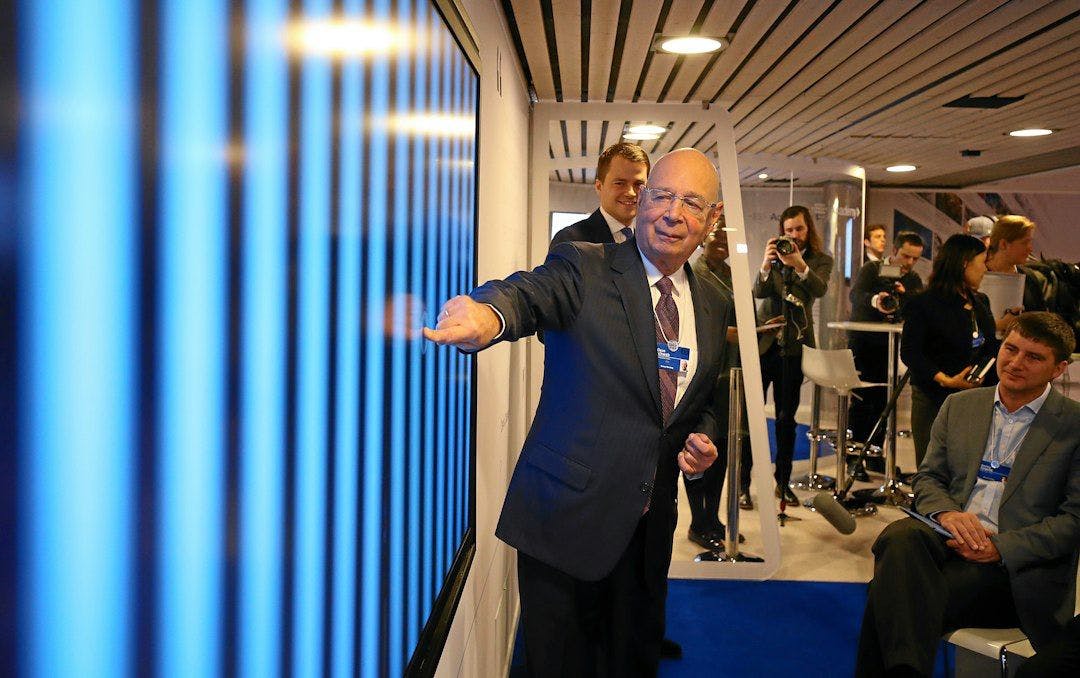In a conversation with World Economic Forum (WEF) founder Klaus Schwab, Microsoft CEO Satya Nadella contradicts his chief economist about waiting to address unintended consequences of new technologies.
At the WEF annual meeting in Davos, Switzerland, Schwab asked Nadella what rebuilding trust meant to him in the context of the tech industry.
The Microsoft CEO explained that the fundamental change of the last 10 years was a move towards anticipating and addressing both the benefits and the unintended consequences of new technologies simultaneously, which is the exact opposite of what Microsoft chief economist and corporate VP Michael Schwarz told the WEF some eight months prior, who said, “We shouldn’t regulate AI until we see some meaningful harm.”
On rebuilding trust in the tech industry, Nadella told Schwab today:
“The biggest lesson learned perhaps for us is that we have to take the unintended consequences of any new technology along with all the benefits and think about them simultaneously as opposed to waiting for the unintended consequences to show up and then address them”
Satya Nadella, Microsoft CEO, WEF Annual Meeting 2024
“I think that’s the fundamental change in the last 10 years,” the Microsoft CEO added.
“I feel like our license to operate as an industry depends on that because I don’t think the world will put up anymore with any of us coming up with something that has not thought through safety, trust, equity — these are big issues for everyone in the world.”
Nadella’s words contradict what his chief economist told the WEF Growth Summit 2023 last May.
There, Michael Schwarz said the complete opposite of what Nadella said today with regards to waiting for unintended consequences.
“We shouldn’t regulate AI until we see some meaningful harm that is actually happening — not imaginary scenarios”
Michael Schwarz, Microsoft Chief Economist & Corporate VP, WEF Growth Summit 2023
Moderator Zain Asher, an anchor at CNN International, appeared taken aback by Schwarz’s statement, saying, “You mean, wait until we see harm before we regulate it?”
To which the Microsoft corporate VP reaffirmed, “Well, I would say yes because we could not predict where or whether your problems would be.”
Schwarz backed up his claim by saying that driver’s licenses were only issued after a lot of people died, and that that was the right decision.
“The first time we starting requiring driver’s license it was after many dozens of people died in car accidents, right, and that was the right thing,” said Microsoft’s chief economist.
“If we would have required driver’s licenses where there were the first two cars on the road, that would have been a big mistake. We would have completely screwed up that regulation.
“There has to be at least a little bit of harm, so that we see what is the real problem,” he added.
“I don’t think the world will put up anymore with any of us coming up with something that has not thought through safety, trust, equity”
Satya Nadella, Microsoft CEO, WEF Annual Meeting 2024
“The combination of private innovation, with a safety-first approach to engineering, and then regulation that allows us to ensure that the broad societal benefits are amplified and the unintended consequences are dampened, I think is going to be the way forward”
Satya Nadella, Microsoft CEO, WEF Annual Meeting 2024
While Microsoft CEO Satya Nadella says the biggest lesson learned from the past 10 years in the tech industry is to not wait for unintended consequences, his chief economist says the opposite— that it’s best to wait and see real meaningful harm before regulating.
This article was originally published by Tim Hinchliffe on The Sociable
